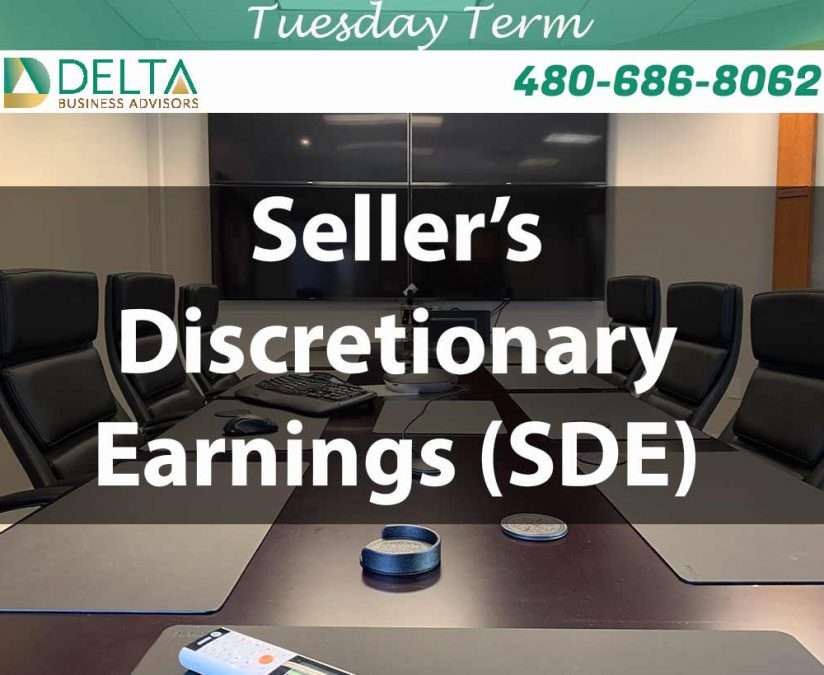Seller’s Discretionary Earnings (SDE) – It is the Total Owner Benefit a business produces. Generally, it is used for evaluating businesses with gross annual sales that are under $1,000,000. For businesses over $1,000,000, EBITDA is generally used.
How Small Businesses Are Valued Based on Seller’s Discretionary Earnings (SDE)
Public companies and middle-market businesses are valued as a multiple of EBITDA – Earnings Before Interest, Taxes, Depreciation and Amortization. However, smaller businesses are valued as a multiple of Seller’s Discretionary Earnings (SDE), which can be defined as EBITDA + Owner’s Compensation. Therefore, SDE is typically the net income (or net loss) on the company tax return + interest expense + depreciation expense + amortization expense + the current owner’s salary + owner perks. Also known as SDCF-Sellers Discretionary Cash Flow.
